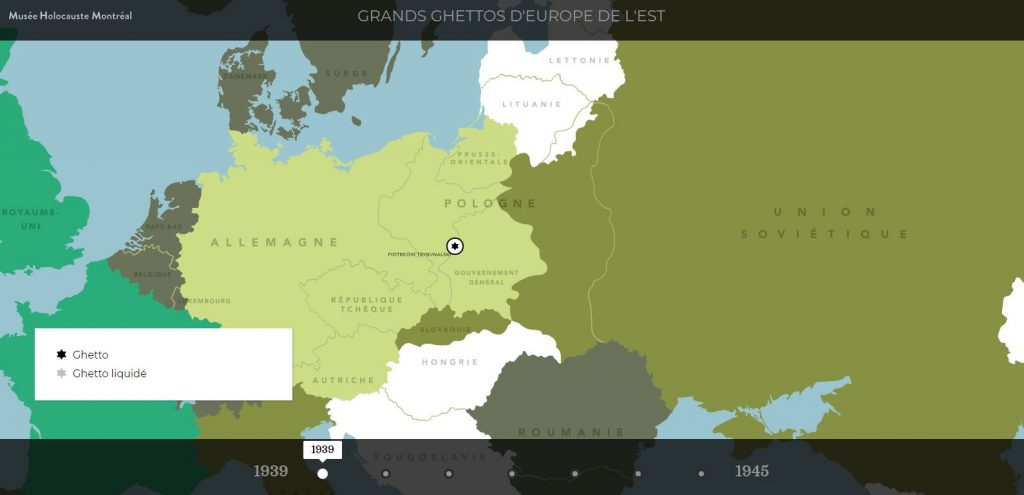To teach the history of the Holocaust at the elementary level, the museum follows these general guidelines and offers specific recommendations for third-cycle primary students. The goal is to provide a foundation for a more in-depth study of the history of the Holocaust at the high school level.

1. Respect the sensitivity and cognitive skills of students.
- Emphasize themes related to pre-war life, resistance and rescue.
- Avoid talking about killings, Einsatzgruppen or any other topic that could traumatize your students.
2. Use personal stories to:
- Humanize history
- Develop empathy among students
- Understand the complexity and diversity of experiences related to the Holocaust
3. Provide context and a variety of supports:
- Work with timelines
- Clarify vocabulary when necessary
- Present maps of Europe
- Provide access to primary sources: photos, documents, objects, and testimonies

4. Allow your students to express their emotions
Propose an art activity (the Heart from Auschwitz, for example), write a poem or a text.

5. Convey a message of hope and a better world
You can talk about democratic achievements like justice and citizenship; certain essential values such as respect for diversity, humanity and universalism.
Consult our Educational Activities for Primary School
